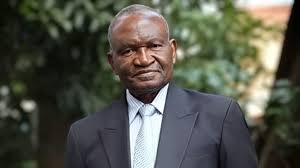Former Attorney-General and Minister of Justice, Senator Kanu Agabi, has issued a strong call to Nigerians with hidden wealth abroad, urging them to repatriate these funds to boost the country’s economy.
In a recent interview on Ethicspod, a podcast by the Independent Corrupt Practices Commission (ICPC), Agabi highlighted how these funds, if brought back and invested in vital sectors, could help rescue Nigeria’s struggling economy.
“Whether the money was obtained legitimately or illegitimately, it doesn’t matter,” Agabi stated.
He urged Nigerians with stashed funds abroad to bring the money home.
The former minister believes that these hidden funds could be key to the nation’s development, especially if channeled into sectors like education, power, and infrastructure.
“If these funds are invested in critical sectors like education, power, or infrastructure, Nigeria would be on the path to self-reliance and gradually eliminating corruption,” Agabi said.
Agabi’s comments come at a time when Nigeria’s economy is facing serious challenges.
Inflation, high unemployment rates, and a struggling power sector have all placed immense pressure on the government to find solutions.
According to Agabi, many Nigerians with wealth hidden in foreign accounts are afraid to return the money due to the fear of retribution from anti-corruption agencies.
He acknowledged that this fear is real, but said that the benefits of repatriating the funds far outweigh the risks.
“If you’re holding back money abroad, you are holding back Nigeria’s progress,” Agabi added.
He stressed that the country is in desperate need of funds to address critical infrastructure gaps, improve education, and create jobs.
Agabi pointed out that Nigeria is not the first country to face this issue.
He cited the example of Italy under former Prime Minister Silvio Berlusconi, where a similar call for the return of hidden wealth helped to stabilize the economy in the early 2000s.
The former minister also addressed the long-standing issue of corruption in Nigeria.
He admitted that corruption cannot be eradicated overnight, but said that repatriating stolen funds could be a major step forward.
“Corruption is not going to disappear in a day,” Agabi said.
“It will take time, but we need to start somewhere.”
Agabi also raised concerns about Nigeria’s leadership and its role in the ongoing fight against corruption.
He noted that poor leadership has often hindered progress in the fight against graft.
“Leadership issues have been a major hindrance to the fight against corruption in Nigeria,” Agabi said.
He explained that many political leaders, both past and present, are responsible for stashing money abroad, further complicating efforts to tackle corruption.
Agabi expressed his disappointment that, despite the sound legal frameworks in place to fight corruption, Nigeria continues to struggle with effective enforcement.
He pointed out that anti-corruption agencies like the ICPC and the Economic and Financial Crimes Commission (EFCC) have solid laws behind them, but the challenge lies in implementation.
“The laws are there, but we need the right people to enforce them,” Agabi said.
He commended the judiciary for its role in the fight against corruption, but noted that the system is often overwhelmed.
“Our judges are handling 20 to 30 cases daily,” Agabi remarked.
“How can they manage that?”
He warned that the sheer volume of cases is causing many judges to become indifferent, trapped in a system that is too large for them to control.
This, he said, is one of the reasons why the fight against corruption has been so slow.
In his interview, Agabi also discussed the role of Nigeria’s youth in the fight against corruption.
He expressed concern that many young people are unequipped to contribute meaningfully to this battle.
He blamed inadequate education for this issue.
“Instead of fighting corruption, many youths are unknowingly fueling it,” he said.
Agabi believes that corruption has taken root in many parts of Nigerian society and that young people often find themselves caught in this cycle, largely due to lack of education and opportunities.
He urged the government to focus on improving the education system, arguing that a better-educated populace is crucial to the long-term fight against corruption.
Agabi’s call to repatriate hidden funds comes at a critical time for Nigeria, as the country continues to face economic hardships.

